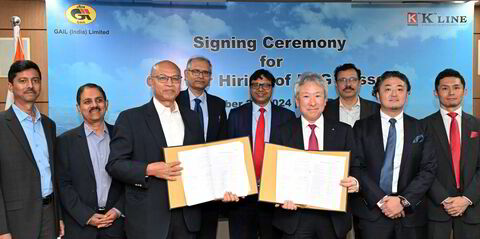Shtokman Development shareholders have delayed making a final investment decision on phase one of the giant gas and LNG project in the Barents Sea for at least three months.
The wait severely jeopardises start-up of the project by the original 2016 target date, industry sources said.
Russia’s Gazprom, Total of France and Norway’s Statoil said after a board meeting on 29 December that “some additional time is required to achieve the necessary conditions to take the final investment decision”.
The partners set a new sanction deadline for the end of March. The original development plan was to begin commercial flows of gas in 2016 from a floating production unit tied back to shore via long-distance pipelines. LNG exports were scheduled to start a year later.
“It will now be very hard to meet that date,” said a source.
While it is feasible the huge FPU could be ready by 2016, questions remain about whether the same applies to the field’s subsea hardware.
Subsea production systems and pipelines need to be installed during the summer weather windows of 2014, 2015 and 2016.
With no agreements believed to be in place, however, the 2014 window could well be missed, putting the project back by a year.
A separate source was more definitive, saying that postponement of the final investment decision means “the production schedule will be delayed”.
A hold-up has been widely expected in Moscow after Russian authorities refused to guarantee sizeable tax breaks for the project.
Total and Statoil, holding a combined 49% stake in Shtokman, are calling for tax concessions, pointing to breaks granted by the government to the Novatek-led Yamal LNG project where an investment decision is also planned this year.
However, Russian Energy Minister Sergei Shmatko said last month that no tax breaks will be given to Shtokman until the operator discloses details on the project’s economics to the government.
The Moscow-based Rusenergy consultancy said Total and Statoil are at loggerheads with Gazprom on issues such as shareholder relations, as well as technical and fiscal aspects of the first-phase development.
Rusenergy suggested the project could even see a change in the shareholder structure if differences continue to mount.


